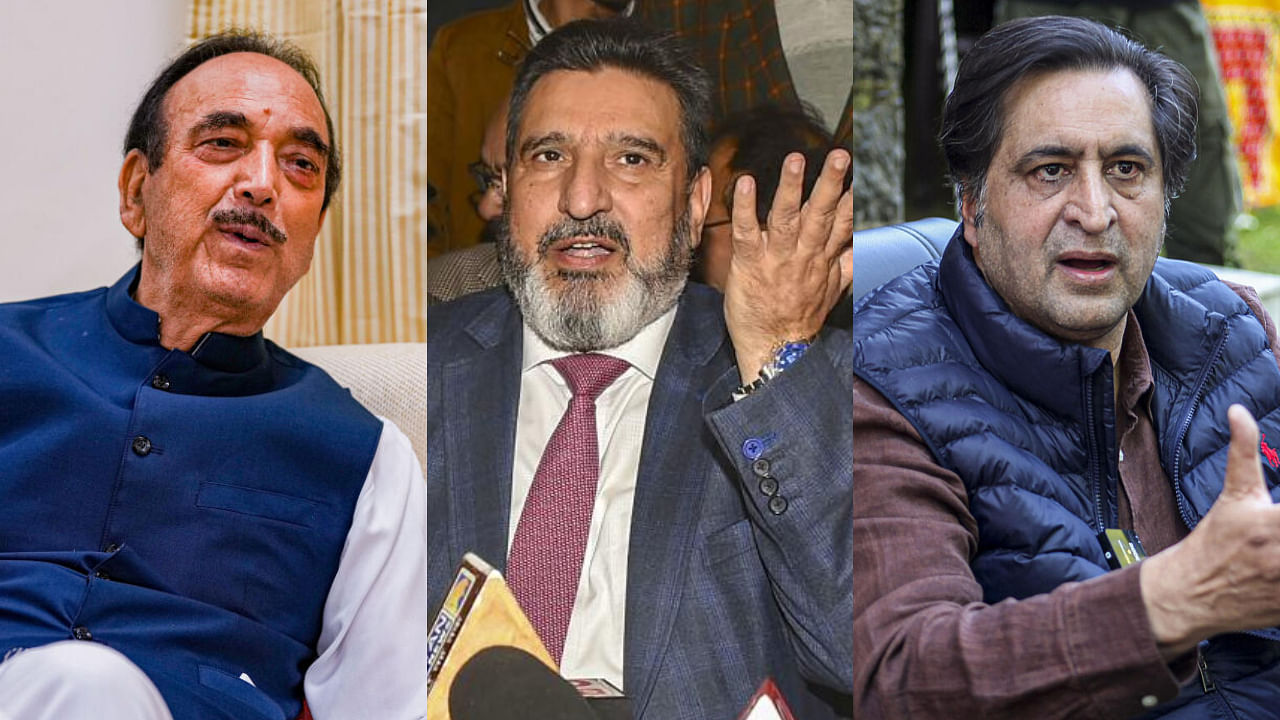
Democratic Progressive Azad Party (DPAP) leader Ghulam Nabi Azad (Left), Apni Party (AP) chief Altaf Bukhari (Centre), and People's Conference (PC) leader Sajjad Lone (Right).
Credit: PTI Photos
Srinagar: As the much-anticipated assembly elections draw nearer, the political landscape in Jammu and Kashmir is undergoing a significant shift.
The Apni Party (AP) led by Altaf Bukhari, People's Conference (PC) led by Sajjad Lone, and Ghulam Nabi Azad's Democratic Progressive Azad Party (DPAP) are witnessing a loss of momentum as several leaders who had previously defected from the People's Democratic Party (PDP) and Congress are now returning to their original affiliations.
This political realignment is largely attributed to the recent setbacks suffered by these parties in the Lok Sabha polls, where they were perceived to be BJP proxies. The disappointing results have sparked a wave of reconsideration among politicians who initially sought new platforms but now see a better future within their parent organizations.
The DPAP, a party launched by former Congress leader Azad with much fanfare in 2022, managed to secure only 80,264 votes across the three Lok Sabha constituencies it contested in J&K, which has around 54 lakh voters.
The PC and AP, aiming to claim the political space traditionally occupied by NC and PDP, contested together against the National Conference and the PDP in the Lok Sabha polls. While AP supported Lone in Baramulla in his fight against NC’s Omar Abdullah, PC supported AP in the other two valley constituencies, particularly in Anantnag-Rajouri where AP’s Zafar Manhas faced Mehbooba Mufti and NC’s Mian Altaf.
This alliance clearly had the support of the BJP, which did not field any candidates in the three constituencies of the valley. However, Lone managed to poll only 1,71,582 votes (16.76 per cent) and saved his security deposit by a thin margin of nearly 1,000 votes, while AP’s candidates lost their security deposits in both the Anantnag and Srinagar LS seats.
The failure of these new alignments to secure significant victories has led to a re-evaluation of their political strategies. The return of the leaders signifies a lack of confidence in the newly formed or rebranded parties and a renewed faith in their old affiliations.
The PDP and Congress are capitalizing on this momentum, welcoming back their former members with open arms. The returnees bring with them not only their political experience but also the grassroots support they had cultivated over the years within their constituencies. This influx is expected to strengthen the traditional parties as they prepare for the assembly elections.
The political scene in Jammu and Kashmir remains fluid, with shifting alliances and strategic repositioning. As the assembly polls approach, the resurgence of the PDP and Congress could significantly alter the electoral outcomes.